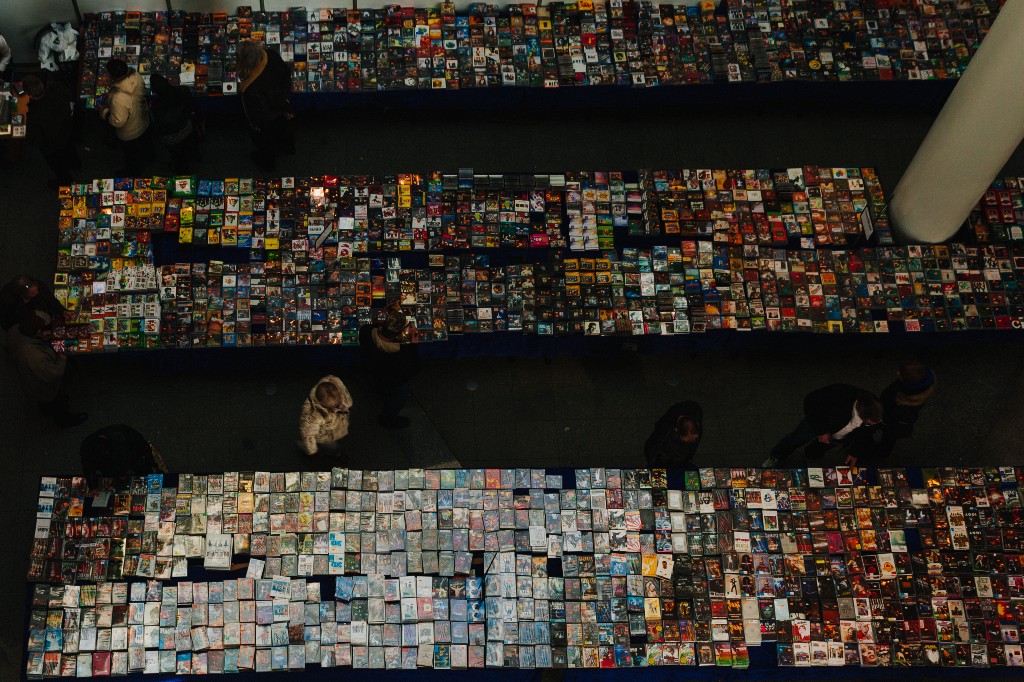Why You Should Care About the Redbox Acquisition
It’s proof that physical media is dying.

We hear a lot about companies being acquired and/or bought out. It seems to happen pretty frequently (ahem, Yahoo?). But last week, a tiny blip of acquisition news caught my eye: Redbox.
You know, the company that supplies those vending-machine things with DVDs inside? The company that most of us roll our eyes at because Netflix exists? They were bought out last week by a private equity firm called Apollo Global Management. They’re a big, boring investment firm who follows the money whether it leads to timeshare companies or Hewlett-Packard.
The first reaction many of us had was, Who cares? Totally normal reaction. But if you read closely enough, this is undoubtedly one of the weirdest financial acquisitions to happen in a very long time. Here’s why:
1. The company is going from public to private.
For the uninitiated, going public means that a company is opening up their stock for public purchase. People who don’t work for the company (thus having less stake in its overall success) can buy into and have a say in how things are run. It means that the company’s going to have way more eyes upon it.
Knowing that, think of what going private implies. Less people over your shoulder deciding what you should do, and way more power for people on the inside. Apollo offered the shareholders a price eleven percent higher than the going rate for their shares. The more control they can consolidate, the better. Redbox’s death is likely going to be quick and very quiet.
2. Redbox’s parent company might have spent time on the wrong things.
The parent company of Redbox is Outerwall, a company that has some seriously interesting investments. Redbox is their pride and joy, but they also own Coinstar. I know. Just as easy to make fun of in terms of weird grocery store kiosks.
But they also own Gazelle, a straightforward and pretty well liked technology reselling platform (full disclosure: I’ve used them to sell a few items). Also on their list? ecoATM, a line of kiosks built to be the easiest form of e-recycling. Just dump your old phone in there and get twenty bucks back. Wouldn’t you have rather had that in your grocery store?
3. This is even more proof that physical media is dying.
With Blockbuster gone, Redbox is officially the biggest company for “disc rental” (meaning DVDs and Blu-Rays alike). They’re it. They’re the Last Chance Texaco for if you just want to rent a movie for a party and don’t have a tiny, weird video store near you.
To some people, that’s actually a really good thing. That means Redbox virtually doesn’t have any competition. It sheds some light on why the people who bought Outerwall paid over a billion dollars for its sorry behind. But while Outerwall owns other cool brands, Redbox took up 80 percent of its total business. So if Redbox went down, the whole company would go down with it.
With trends going the way they are with physical media, Outerwall had to adapt or die. Their first stab at streaming didn’t go well, and they’re looking to try it again. But maybe it’s too late for them. Maybe we’re all going digital too fast, and Redbox just couldn’t change fast enough.
Brit McGinnis is a copywriter and author of several books. Her work has appeared on XOJane, SparkNotes and anywhere fine stories are sold. She lives in Portland, Oregon.
Support The Billfold
The Billfold continues to exist thanks to support from our readers. Help us continue to do our work by making a monthly pledge on Patreon or a one-time-only contribution through PayPal.
Comments